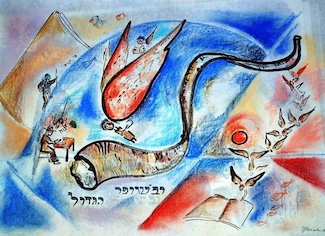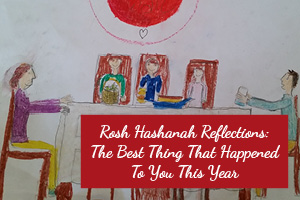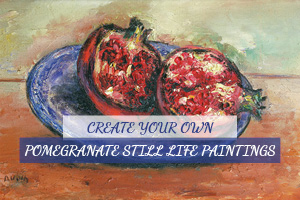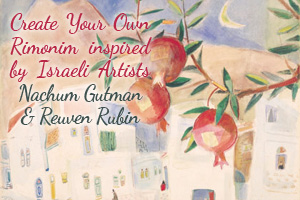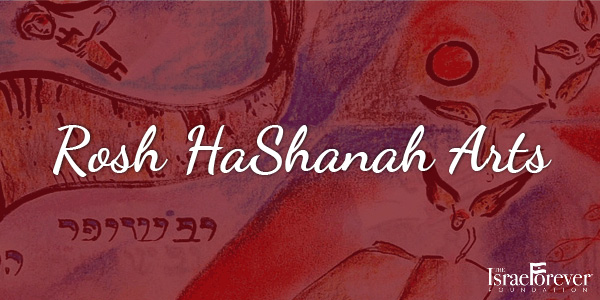A Yom Kippur Remembrance: What’s in a name?
The Day of Atonement is the day the Jewish people, no matter how observant they may be, flock to their synagogues to search deep inside themselves to reflect upon the past year. How they spent their days, the trips they took, the memories they made with their friends and families during the past year, basically all that they did, their actions and the impact they had on others - both good and bad, as well as their behavior - both good and bad.
We search deep into our souls and humbly admit the things we did wrong. Perhaps you didn’t speak as kindly as you should or could have to your siblings, or you weren’t as thoughtful to your neighbor or helpful to your mother, or respectful to your elders. Everyone strays from the path in some form or fashion; for all of us are human afterall, and it is natural for humans to make mistakes and then, hopefully, learn from those mistakes.
Yom Kippur might be the day in which the Jewish people focus on their wrongdoings, asking for forgiveness and atoning properly, but it is also the first day in the Jewish year in which we say Yizkor, the memorial prayer recited for the dearly departed - spouses, parents, children, or siblings.
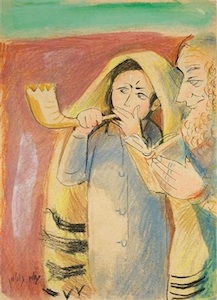
© Nahum Gutman
Yizkor means "remembrance" in Hebrew and most commonly refers to memorial prayer services held four times a year during Yom Kippur, Sukkot, Passover and Shavuot. Jewish people believe in the eternity of the soul. It is common belief that by saying Yizkor, remembering a loved one and giving charity in a loved one's name helps his or her soul gain merit from our good deeds. Reciting Yizkor may also serve as a very important and reflective time for individuals honoring and commemorating loved ones.
You only have to participate in the Yizkor service if you have lost a parent, child, sibling, or spouse. If you have not, then you do not participate in the Yizkor ceremony. The rabbi kindly asks those that do not have to say Yizkor to leave the sanctuary. For the past 45 years I have had the privilege of leaving the sanctuary, thank G-D.
However, for the past 37 of my 45 years of life, four times a year when the Yizkor service is conducted, I have hugged and kissed my mom, and held her hand ever so tightly as I would exit my row in shul. I could not stop the tears from falling because I felt badly that she had to stay inside and recite Yizkor for her father, my dearly beloved and incredibly special Grandpa Max. I just wanted to stay there with her and hold her hand and give her support.
Thankfully, I have no idea what it feels like to lose a parent, and, to be honest, the older I get, the more I live in fear for the day when I, like everyone else, will have to experience it first hand. My parents are my very best friends and I can not imagine life without them.
As I grew up, married, and had my first born son, I had the honor and privilege of naming him after my maternal Grandfather aka: Grandpa Max. And after 8 years of Max being an only child, my husband and I were blessed with a set of twin boys and had the honor and privilege of naming one of them after my maternal and paternal Grandfathers aka: my Grandpa Ted and my husband’s Grandpa Marty; the first born twin, by one minute is Theodore Martin.
I have had the privilege of introducing both Max and Theo to their namesakes when we visited the cemetery to pay our respects. There is something incredibly special and meaningful, and quite emotional when you introduce your child to their namesake - and they see their name on the headstone.
Tears well up in my eyes, my knees lock, my upper lip quivers a bit, and I found myself saying out loud, “Hi Grandpa Max. I miss you so much. I named my firstborn son after you. His name is Max too.” And to my other Grandpa, I say, “Hi Grandpa Ted. I miss you so much. We had a set of twins and one of them is named Theodore, after you. We call him Theo for short, sometimes we call him Teddy.”
I realized that not all of us know who we are named after or where our names come from. Hence the creation of the Israel Forever Name Art Project
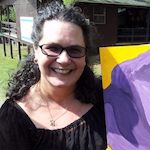
Stefanie Jo Heideman, founder of Art Escapades, is an art educator who believes that art is not supposed to be competitive, but rather a peaceful, relaxing experience for one to engage in and enjoy. As the Arts and Education Specialist for Israel Forever, Stefie is able to weave her love of Israel into her projects and lesson plans for individuals of all ages and stages of life.
Recommended for you:
BRING ISRAEL INTO YOUR CHAGIM
This New Year, explore and connect with Israel Inspired drawings, paintings & collages.
About the Author


